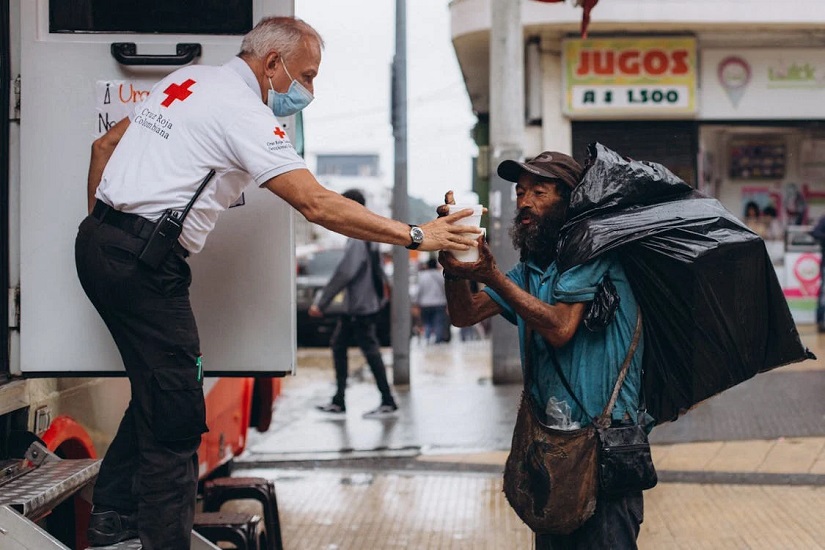Involuntary Medical Admission and Treatment: Examining the Fallacy as a Solution to Homelessness in Canada
Date: Sunday, November 17, 2024
The pressing issue of homelessness continues to plague Canadian society, with the housing crisis exacerbating the plight of an increasing number of individuals forced to live on the streets. Shockingly, statistics reveal that more than one in 10 Canadians have faced some form of homelessness in their lifetime, underscoring the urgency of addressing this complex social challenge. In response to the escalating crisis, authorities have resorted to divisive measures, including dismantling homeless encampments and restricting essential services near vulnerable communities, such as supervised drug consumption sites. Furthermore, involuntary medical admission and treatment are now seemingly being considered as a deterrent against homelessness, raising ethical and legal concerns regarding the infringement of individuals’ rights and the underlying structural issues at the core of homelessness.
The Rise in Involuntary Treatments: Ethical Dilemmas and Legal Complexities
In Canada, existing provincial mental health legislation allows for involuntary admission and treatment, enabling authorities to compel individuals into care under specific criteria such as danger to self or others, incapacity for consent, or the necessity of treatment. However, the utilization of involuntary measures should be a last resort, as fundamental rights to autonomy and self-determination take precedence over medical interventions. Notably, the absence of comprehensive data on the prevalence of involuntary admission and treatment in Canada underscores a concerning lack of transparency and accountability in mental health practices.
Research findings suggest a troubling escalation in the use of mental health legislation to detain individuals in provinces including Québec, Ontario, and British Columbia, mirroring global trends where coercion has become increasingly common in mental health interventions. Alarmingly, marginalized and Indigenous populations, as well as those living in precarious conditions, are disproportionately subjected to involuntary treatment, highlighting systemic inequities in access to healthcare and social services. Reports of rights violations and mistreatment in psychiatric facilities have resulted in legal actions and punitive measures against healthcare institutions, emphasizing the need for stringent oversight and adherence to ethical standards in mental health care.
Debunking Myths Surrounding Involuntary Treatments: Challenging Preconceptions and Proposing Alternatives
Advocates of involuntary treatments often perpetuate unfounded claims linking mental health issues or addiction to homelessness, despite evidence indicating that economic factors, such as housing affordability and income disparities, are primary contributors to the epidemic of homelessness. The misperception that individuals with mental health conditions or substance use disorders pose a significant risk to public safety has been refuted by research, debunking stereotypes that further stigmatize vulnerable populations. Moreover, the efficacy of involuntary treatment in improving treatment adherence, relapse prevention, or overall social functioning remains unsubstantiated, with coercive measures demonstrating adverse outcomes and ethical concerns.
Promoting a paradigm shift in addressing homelessness and mental health crises, community-based services, trauma-informed approaches, and experiential knowledge-sharing are advocated as more effective and respectful alternatives to coercion. Rather than resorting to punitive measures that violate human rights and exacerbate social inequalities, investing in accessible and culturally sensitive interventions that prioritize individual well-being and autonomy is crucial in fostering inclusive and sustainable solutions. Amid calls for compassionate care as an euphemism for involuntary treatment, it is imperative to interrogate the underlying motives and implications of such initiatives in combating homelessness and promoting social justice.
Toward Compassionate and Inclusive Solutions: An Ethical Imperative
As discussions surrounding involuntary medical admission and treatment intensify in the context of homelessness, it is essential to reframe the narrative from coercion to compassion, from restriction to empowerment. By challenging entrenched biases, dismantling systemic barriers, and amplifying the voices of marginalized communities, a more holistic and humane approach to addressing homelessness can emerge. Governments must prioritize investments in affordable housing, mental health services, and social welfare programs to address the root causes of homelessness and inequality, rather than resorting to punitive measures that compromise fundamental freedoms and dignity.
In conclusion, the pursuit of compassionate and inclusive solutions to homelessness necessitates a fundamental shift in policy frameworks, societal attitudes, and ethical imperatives. By upholding the principles of autonomy, dignity, and social justice, Canada can forge a path towards a more equitable and compassionate society where all individuals have the opportunity to thrive and flourish. The time for transformative change is now, and the challenge to confront homelessness with empathy, solidarity, and respect for human rights is a collective responsibility that must be embraced by all stakeholders in the pursuit of a more just and compassionate society.
Fantasy image." (Simple and straightforward)
